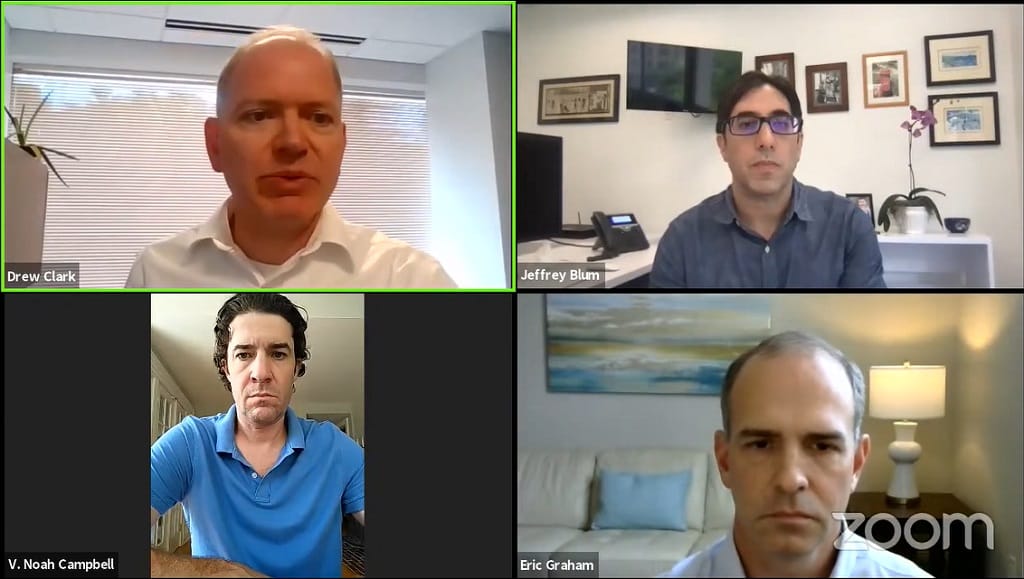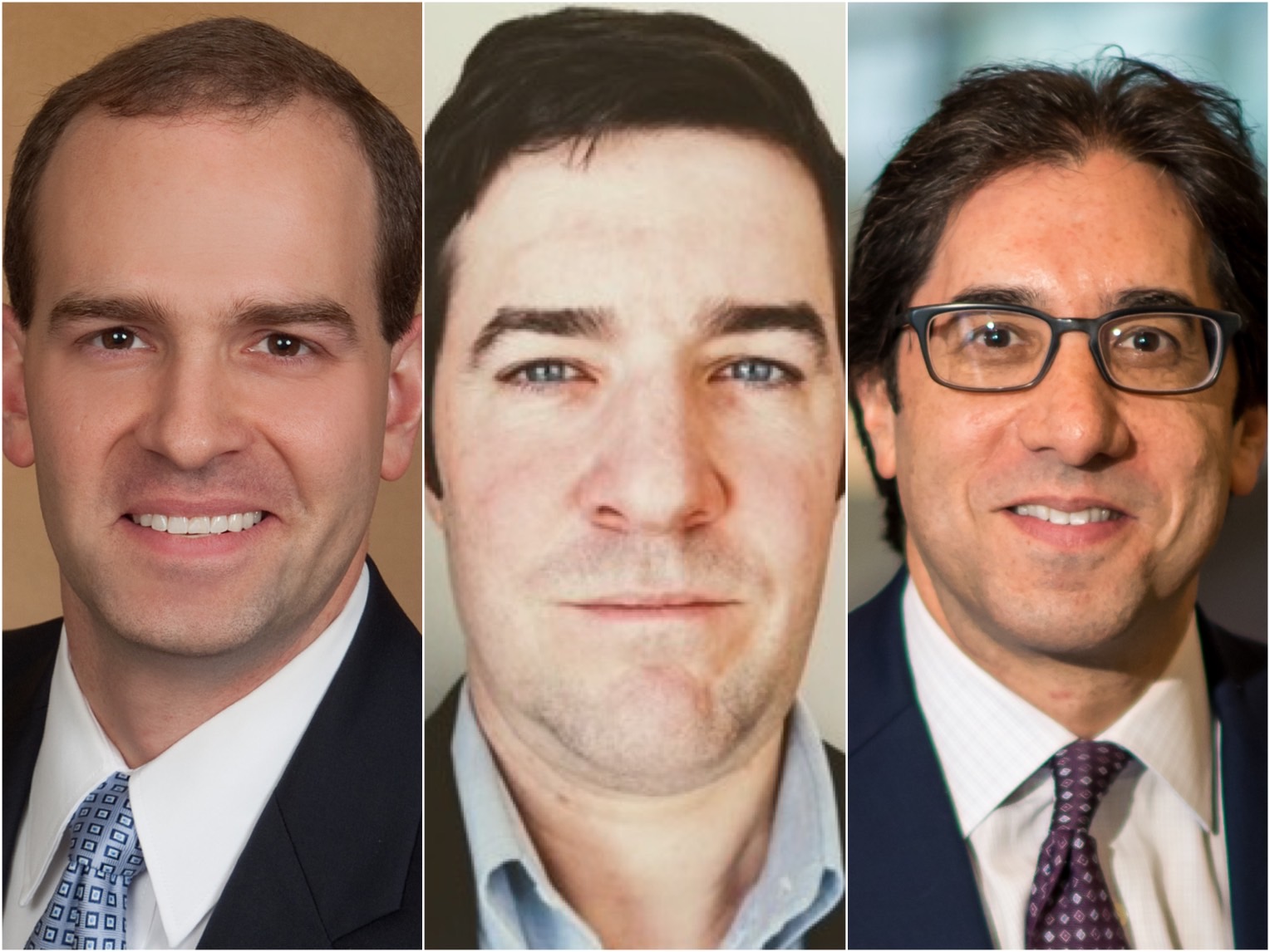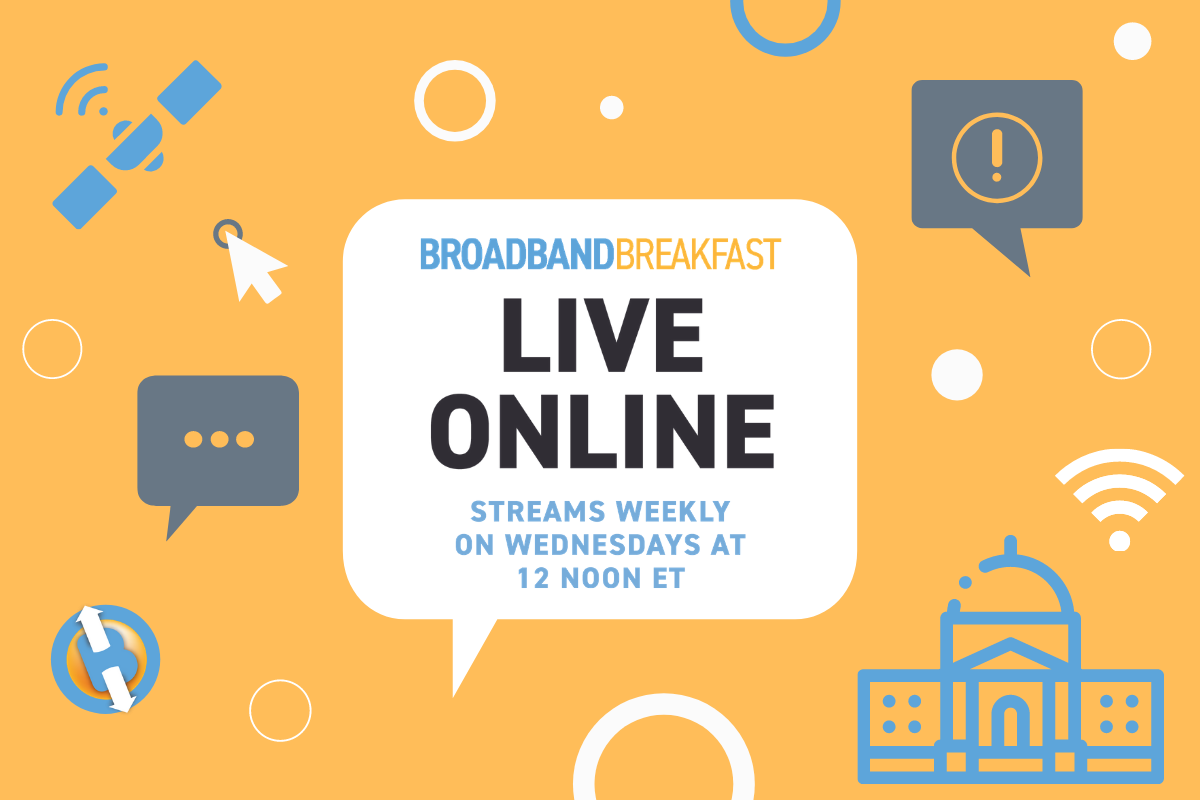Companies Clash Over Spectrum Sharing in 12 GHz Spectrum Band
Satellite service provider Dish, which is open to 12 GHz for mobile, recently signed a network sharing deal with AT&T.

July 19, 2021—While some experts believe that the 12 GHz spectrum band is a natural space for 5G to expand into, others remain unconvinced that doing so would not interrupt incumbent usage.
Broadband Breakfast convened a panel of experts on July 14 as part of its Broadband Breakfast Live Online event on “Spectrum for 5G, LEOs and the Future of the 12 GigaHertz (GHz) Band.”
Though the 12 GHz band has been used up to this point for low-earth orbit satellite networks, there has recently been debate over converting some of the band for terrestrial mobile use—a move that has frustrated some incumbents who assert that terrestrial mobile use would interfere with satellite services.
Eric Graham, the director of government and regulatory engagement for satellite provider OneWeb, described the effort to expand usage of the 12 GHz band as uncertain at best, arguing that new mobile devices operating in the band would create harmful and unpredictable interference.
“We use a very low level of power in the [non-geostationary-satellite orbit, fixed-satellite service] world,” Graham explained. “By the time the satellite signal reaches Earth from 1,200 kilometers away, that signal is very weak, and a terrestrial mobile device—your smartphone or other device—will wipe out that signal to the user terminal.”
According to Graham, there was a consensus at the conclusion of the reply comment round on this issue at the FCC. “Everyone had agreed that it was impossible for terrestrial mobile to coexist with the incumbents.” He stated that it has only been within the last year that proponents of expanding access to the band “found a way to create a study that purports to support coexistence.”
The argument for flexible use
Not everyone was convinced of Graham’s position, however. Co-founder and CEO of RS Access Noah Campbell argued that coexistence is not only possible but is vital to 5G deployment in the U.S. RS Access penned the first technical feasibility study that they argue proves that the 12 GHz band could host both mobile terrestrial devices and satellite services.
Cambell pointed out that the 12 GHz band is unique because it represents a significant swath of spectrum (500 MHz), despite only being licensed for one way service.
“In the context of 2021’s technology landscape that is absolutely insane,” he said. “[The FCC] would never license a frequency that way ever again. So, these are antiquated rules that really do not make sense from a technology standpoint, and do not make sense from a usage standpoint.”
Jeffrey Blum shared Cambell’s assessment of the 12 GHz. As the executive vice president for external and legislative affairs for Dish Network, Blum indicated Dish’s willingness to work with incumbents in the band.
“We do not want to fight, we want to share,” he said. Dish itself is a 12 GHz incumbent and has been operating satellites in the band since 1995 for over eight-million subscribers.
“We would not want to do anything at all to jeopardize our eight-million subscribers. We are confident that [[non-geostationary-satellite orbit, direct broadcast satellite], and mobile terrestrial uses can coexist.”
In fact, on the day of the live event, Dish announced a 10-year, $5-billion network sharing deal with AT&T to bolster its fledgling 5G network, according to a regulatory filing.

The deal would see AT&T provide support for Dish’s Boost Mobile by providing it with voice and messaging services. To do this, AT&T would be able to use bands of spectrum to which Dish holds licenses—both for their own use and Boost Mobile’s.
If the rules are successfully changed by the FCC, this would include the 12 GHz band.
Dish was able to obtain mobile wireless assets as part of a regulatory deal to approve the T-Mobile-Sprint merger that was completed last year.
In June, Dish announced a deal with Dell Technologies to launch the 5G network based on open radio access network and cloud technologies. Dish began accepting sign-ups for its 5G network that month.
Blum also struck back against the press’s title of the “Battle of the Billionaires.” He stated that DISH does not view the situation that way, and that this effort should only be viewed as a method to update outdated rules.
He pointed to all the technological advancements that have been made since the rules were originally established and, coupled with the need for the U.S. to lead 5G deployment, “the importance of 5G and 5G leadership to our country is essential,” Blum said.
The FCC still must make a decision regarding the 12 GHz band. Though Acting Chairwoman Jessica Rosenworcel has historically been supportive of spectrum sharing initiatives, she has not yet publicly indicated whether she would support such an initiative in the 12 GHz band.
Our Broadband Breakfast Live Online events take place every Wednesday at 12 Noon ET. You can watch the July 14, 2021, event on this page. You can also PARTICIPATE in the current Broadband Breakfast Live Online event. REGISTER HERE.

Wednesday, July 14, 2021, 12 Noon ET — “Spectrum for 5G, Low-Earth Orbit Satellites and Sharing the 12 GigaHertz (GHz) Band”
The 12 GigaHertz (GHz) band of radio frequency spectrum has emerged as a flashpoint in the debate over 5G services versus satellite technologies. Proponents of spectrum sharing believe now is the time to open up the 12 GHz band for more intensive broadband uses. But some satellite services are very much opposed. And the Federal Communications Commission is currently considering the arguments. Come to the July 14 session of Broadband Breakfast for a roundtable discussion on the future of the 12 GHz band.
See “Satellite Operators and Broadband Entrants Vie for Primacy as FCC Debates the 12 GigaHertz Band“
Panelists:
- Eric Graham, Director of Government and Regulatory Engagement for North America, OneWeb
- V. Noah Campbell, Co-founder and CEO, RS Access, LLC
- Jeffrey Blum, Executive Vice President, External and Legislative Affairs, DISH
- Other panelists have been invited
- Drew Clark (moderator), Editor and Publisher of Broadband Breakfast

Eric Graham joined OneWeb in 2019 and is the Director of Government and Regulatory Engagement for North America, with a focus primarily on the United States and Canada. Prior to joining OneWeb, Eric spent 12 years in the terrestrial telecommunications industry (wireless and fiber) as Senior Vice President for Strategic Relations with C Spire. He has appeared as a witness before several committees of the United States Senate and United States House of Representatives, participated in numerous Federal Communications Commission panels and working groups, and has been a delegate at meetings of various international standard setting groups around the world.
V. Noah Campbell founded RS Access in 2018 to acquire spectrum in the 12.2-12.7 GHz band in the United States and to operate wireless networks serving a wide variety of constituents throughout our markets, which comprise approximately 15% of the US population. RS Access’ service is designed to ensure that customers can affordably acquire MVDDS point-to-multipoint connections to augment existing network architectures. Campbell, a wireless industry entrepreneur, also founded Radio Spectrum Group, LLC and MSD Capital, L.P.
Jeff Blum serves as DISH’s Executive Vice President, External & Legislative Affairs, overseeing public policy, regulatory and government affairs in Washington, D.C. He has been with DISH since 2005. Before coming to DISH, Jeff was a partner at the Los Angeles firm of Davis Wright Tremaine, where his practice focused on copyright, First Amendment and anti-piracy litigation. He currently serves as Vice-Chairman of the Satellite Broadcasting and Communications Association (SBCA) as well as serving on the boards of INCOMPAS, the Computer & Communications Industry Association (CCIA) and the Broadband Internet Technical Advisory Group (BITAG).
Drew Clark, Editor and Publisher of Broadband Breakfast, also serves as Of Counsel to The CommLaw Group. He has helped fiber-based and fixed wireless providers negotiate telecom leases and fiber IRUs, litigate to operate in the public right of way, and argue regulatory classifications before federal and state authorities. In addition to representing public and private providers on broadband issues, Drew is actively involved in issues surrounding interconnected Voice-over-Internet-Protocol service, spectrum licenses, robocalling including STIR/SHAKEN, and the provision of video franchises and “over-the-top” copyrighted content.
Panelist resources:
- OneWeb’s 12 GHz Reply Comments to the FCC
- DISH’s 12 GHz Reply Comments to the FCC
- RS Access’ 12 GHz Reply Comments to the FCC
- 12 GHz for 5G’s Reply Comments to the FCC
- Valuing the 12 GHz Spectrum Band with Flexible Use Rights
- Assessment of Feasibility of Coexistence between NGSO FSS Earth Stations and 5G Operations in the 12.2 – 12.7 GHz Band
- Two New Studies Show a Win-Win in 12 GHz Band for Consumers and American 5G Leadership
- 5G for 12 GHz Coalition Calls on FCC to Act Swiftly on Record Showing Robust Engineering Data, Public Support for Unleashing 12 GHz Band for 5G
- Groundbreaking Study Shows 12 GHz Band Will Supercharge 5G Deployment
WATCH HERE, or on YouTube, Twitter and Facebook.

As with all Broadband Breakfast Live Online events, the FREE webcasts will take place at 12 Noon ET on Wednesday.
SUBSCRIBE to the Broadband Breakfast YouTube channel. That way, you will be notified when events go live. Watch on YouTube, Twitter and Facebook.
See a complete list of upcoming and past Broadband Breakfast Live Online events.








